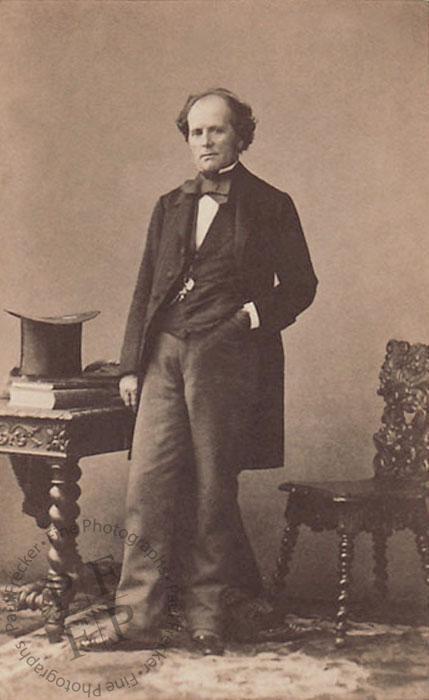François Mignet
(1796-1884)
The French historian François Auguste Alexis Mignet was born on 8 May 1796 in Aix-en-Provence. His father, a locksmith from the Vendée, enthusiastically accepted the principals of the French Revolution and encouraged liberal ideas in his son.
François studied law and was called to the bar in 1818, where his eloquence would have ensured his success had he not been more interested in the study of history. His abilities were shown in an Éloge de Charles VII, which was crowned by the Académie de Nîmes in 1820, and a memoir on Les Institutions de Saint Louis, which in 1821 was crowned by the Académie des Inscriptions et Belles Lettres.
Settling in Paris, he was soon joined by his friend and compatriot, Adolphe Thiers, the future president of the French republic. He was introduced to the Liberal paper Courrier français, where he became a member of the staff, carrying on a fierce pen-and-ink warfare against the Restoration. His Histoire de la révolution française (1824), in support of the Liberal cause, was an enlarged sketch, prepared in four months, in which more stress was laid on fundamental theories than on the facts.
In 1830 he founded the National with Thiers and Armand Carrel, and signed the journalists' protest against the Ordonnances de juillet, but he refused to profit from his party's victory. He was satisfied with the modest position of director of the archives at the Foreign Office, where he stayed till the revolution of 1848, when he was dismissed and retired permanently into private life. He had been elected a member of the Académie des sciences morales et politiques and in 1837 was made the permanent secretary; he was also elected a member of the Académie française in 1836 and sought no further honours.
He was well known in fashionable circles, where his witty conversation and pleasant manners made him a favourite. Most of his time was devoted to study and to his academic duties. He worked slowly and lingered over research. With the exception of his description of the French Revolution, which was chiefly a political manifesto, all his early works refer to the middle ages. His most famous works, however, are devoted to modern history. For a long time he had been taken up with a history of the Reformation, but only one part of it, dealing with the Reformation at Geneva, was published. His Histoire de Marie Stuart (2 vols., 1851) made use of some previously unpublished documents, mostly taken from the archives of Simancas. He also devoted some volumes to a history of Spain, which had a well-deserved success.
François Mignet died in Paris on 24 March 1884.

